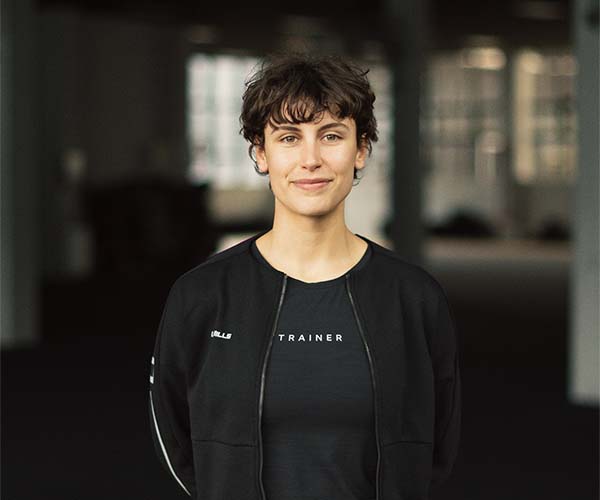Sarah, a member of the fitness team at Les Mills Newmarket, shares her tips to maintaining mental wellness.

Hi Sarah! Can you start by telling us a little bit about yourself and your background?
I’m currently a personal trainer, fitness instructor, yoga teacher, and I also have an online yoga studio.
When I reflect on it, all my experiences with movement and mental health led me here even though working in fitness wasn’t the original plan. After high school I wanted to get into acting, so I studied film at university. I worked on commercials and other projects, but I soon realised that the film industry wasn’t aligned with my values. At that point I had been teaching at the gym for a few years, and even though I knew deep down that movement was what I wholeheartedly loved, I was always too scared to pursue it full time. It wasn't until the second lockdown in Auckland when I started taking a few outdoor group classes for friends where I found the confidence to commit and put myself out there. It's a more unconventional path, but I absolutely love being able to serve others and to share the ways movement has helped me!
Can you share an experience where physical fitness directly impacted your mental well-being?
I recall being in a BODYBALANCE® class in the Relaxation/Meditation track, where I suddenly started to cry. At that time of my life I was experiencing pretty severe depression, and the teacher had created this really beautiful space for me to feel safe and connect to what was going on beneath the surface. To be so in touch with how I was feeling was a little bit scary, but at the same time it was also a release.
I also used to do a lot of HIIT training — I found a lot of joy from the challenge. I remember one of the instructors saying: “You’ve got to find that fire within you and use it to get through this tough set". I was feeling pretty low, and I really needed that push. Doing challenging things in a safe space where you have autonomy over your workout can really help with confidence. Being able to work on myself in that environment and then take those positive feelings out into the rest of my day was a very powerful experience.
How do you manage stress and fatigue, especially given the demands of everyday life?
I make sure that I have time to do the things that bring me joy. For example, I love gardening, cooking, and practicing yoga. When I make time for those things, the rest of the day feels lighter and more manageable. If I don’t make time for the things I love, I’m more prone to experiencing stress and fatigue. And if I can’t find the time to do these things, then I will re-evaluate my schedule and ask, what do I need to let go of so I can have more time for myself? Where do I need to set boundaries? And that can be tough to do, especially if you’re a “yes” person.
I think it’s also about perspective. If you’re constantly saying, “I’m busy, I’m tired”, then that’s going to be your reality. Whereas if you say, “I’m relaxed, I’m open to things”, you’re going to have a different experience. I also try to pay attention to my body: am I holding my breath? Are my muscles tensing up? And if they are, I’ll try to slow down, relax, and connect to my breathing.
Practicing yoga has increased my awareness of my overall wellbeing — physical, mental, and emotional. This awareness has helped me to realize when I need to take action to ensure these things remain balanced.
Are there specific exercises or routines you find particularly beneficial for your mental health?
Yoga has been a big anchor for me. I love the physical and spiritual connection I get from the practice. And then I love doing the hard stuff! LES MILLS GRIT™, LES MILLS SPRINT®, CEREMONY®… I love the mental determination you need to get through those classes, and then the feelings of success you have afterwards.
Were you always the type of person that enjoyed doing something that challenged you? Or did that kind of perspective shift when you found fitness?
I used to swim competitively, which meant training nine times a week for two hours each session. That required a lot of discipline so I suppose I was used to the challenge. But when I discovered yoga, I found that the challenge was different. It was very difficult to just sit in stillness when at the time all I wanted to do was run away from the experience I was having. But, like anything, the more I practiced, the more comfortable I felt being in my body and mind.

What’s your approach to setting and achieving goals in a way that’s mentally sustainable?
I'm not a goal orientated person. I'm very process driven person, which means I focus on the journey rather than the destination. My advice for those looking to set goals is to have a vision of where you’d want to go, but not be too attached to the endgame. It’s more important to celebrate the small wins along the way.
What advice would you give to someone who is looking to prioritize their mental wellness?
Find people within your community, or in the wider world, who live their lives the way you want to live yours, who have values you align with, or who have stories that resonate with you. When I was suffering from depression, reading other people’s stories really helped give me hope for the future. They also helped reassure me that what I was experiencing was normal.
